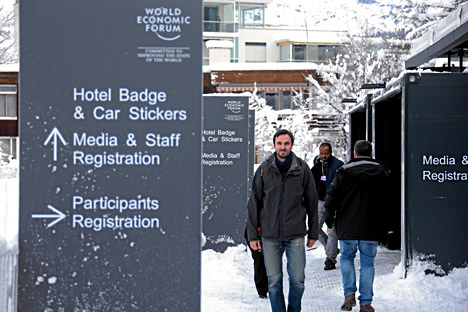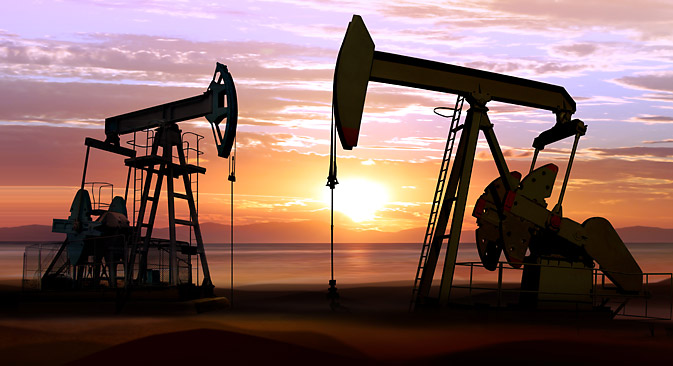Experts at Davos warn Russia against hyperinflation

The preparation work for the upcoming Annual Meeting 2016 of the World Economic Forum in Davos, Switzerland, January 14, 2016.
Andy Mettler/swiss-image.ch/World Economic ForumAs an energy superpower with the second largest nuclear arsenal in the world, Russia will continue to play an active role in geopolitics, says a report based on a survey of 750 members at the World Economic Forum. The report was published a week before the official opening of the World Economic Forum in Davos, Switzerland, on January 20.
The report, however, presented a bleak forecast for the Russian economy, warning of hyperinflation. It said Ukraine would continue to remain unresolved, with imposed sanctions and falling oil prices hurting the Russian economy.
"After the annexation of Crimea no clear political solution to the current conflict in Eastern Ukraine can be seen on the horizon. The European Union -U.S. sanctions in place against Russia combined with low oil prices have damaged the Russian economy, but still have not led to the expected political turnaround (from Moscow)," the report states.
“The desire of leading powers to contain Russia contradicts their overtures of cooperation with them in the fight against ISIS,” the survey report says. “Russia's future depends on the balance between modernization and support from oil exports, as well as the fact that the current government more and more often looks eastwards, with the hope of strengthening political-economic ties. Western countries, which have reduced their defence spending and are busy solving domestic problems, may encounter a lack of resources and political will to follow through on their long-term strategic goals.”
However, Russia is faced with non-geopolitical challenges, as well.
In 2016, Moscow and its partners in Central Asia (in the report they are grouped together in one region) face a 100-percent likelihood of encountering a budget deficit because of the fall in crude oil prices and a decrease in domestic demand. The relative fall in prices of goods from this region on the world market will not help the state treasury replenish its reserves.
“Conditions of average prospects of economic growth in the region will lead to unemployment, which is one of the five most significant risks,” the study says.
Analysts predict that there is an 86-percent probability that Russia and its neighbours will experience inflation. This situation will be brought about by further devaluation of national currencies in relation to the dollar, reduction in state reserves, hyperinflation similar to what Russia witnessed in the 1990s, as well as the probable inability of the government to carry out deep structural and budgetary reforms necessary to support economic growth.
First published in Russian in RBC Daily.
All rights reserved by Rossiyskaya Gazeta.
Subscribe
to our newsletter!
Get the week's best stories straight to your inbox
